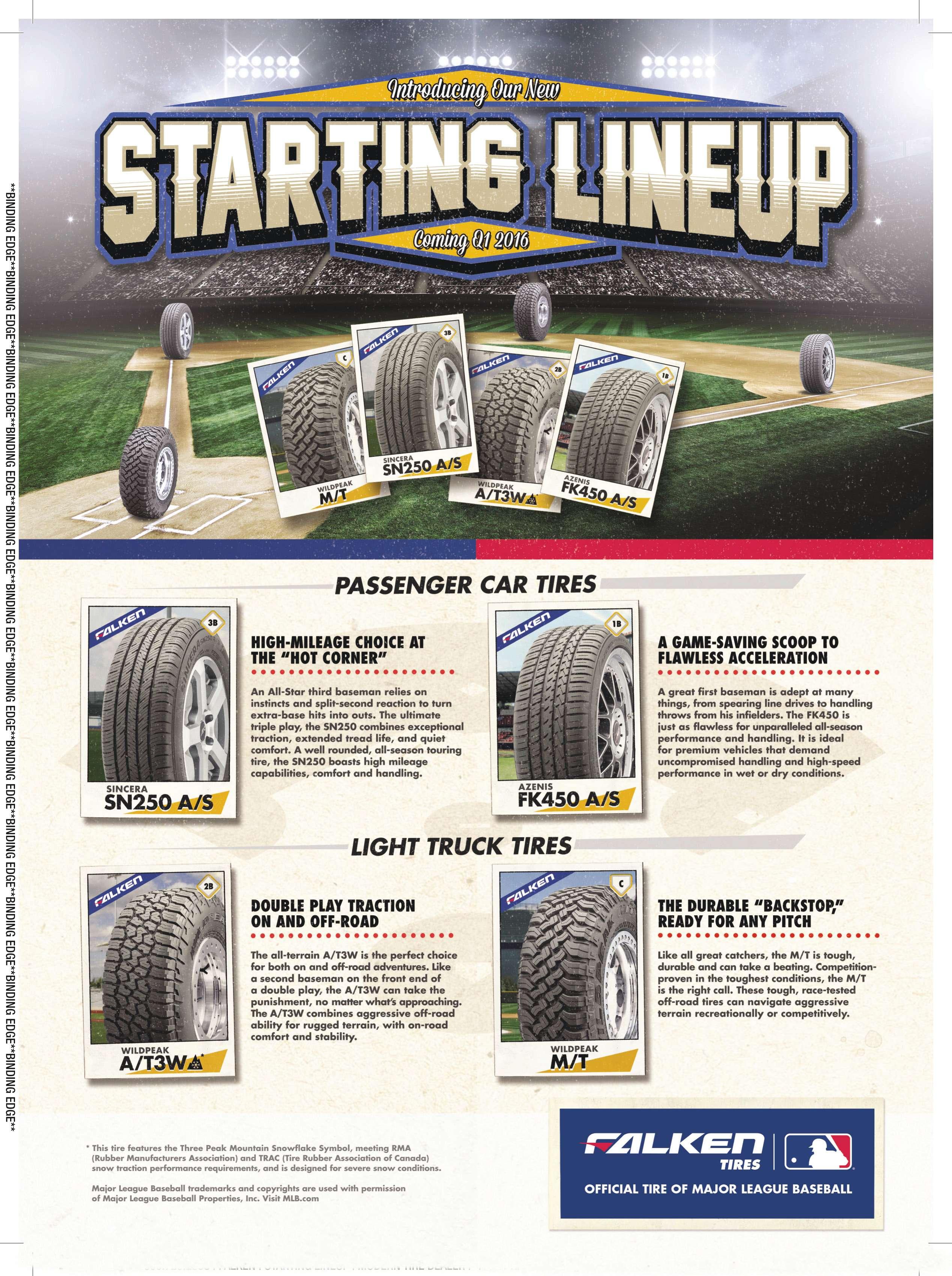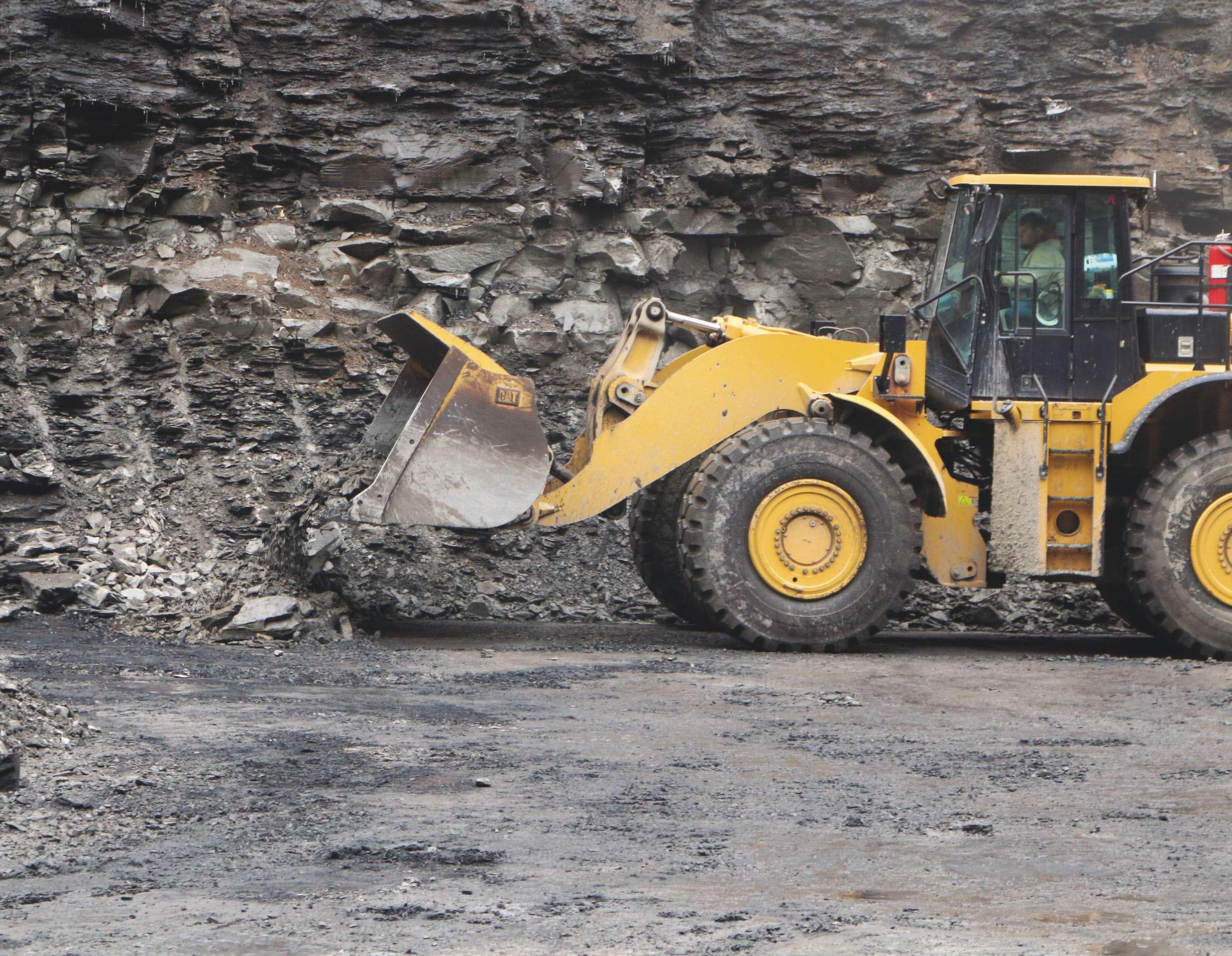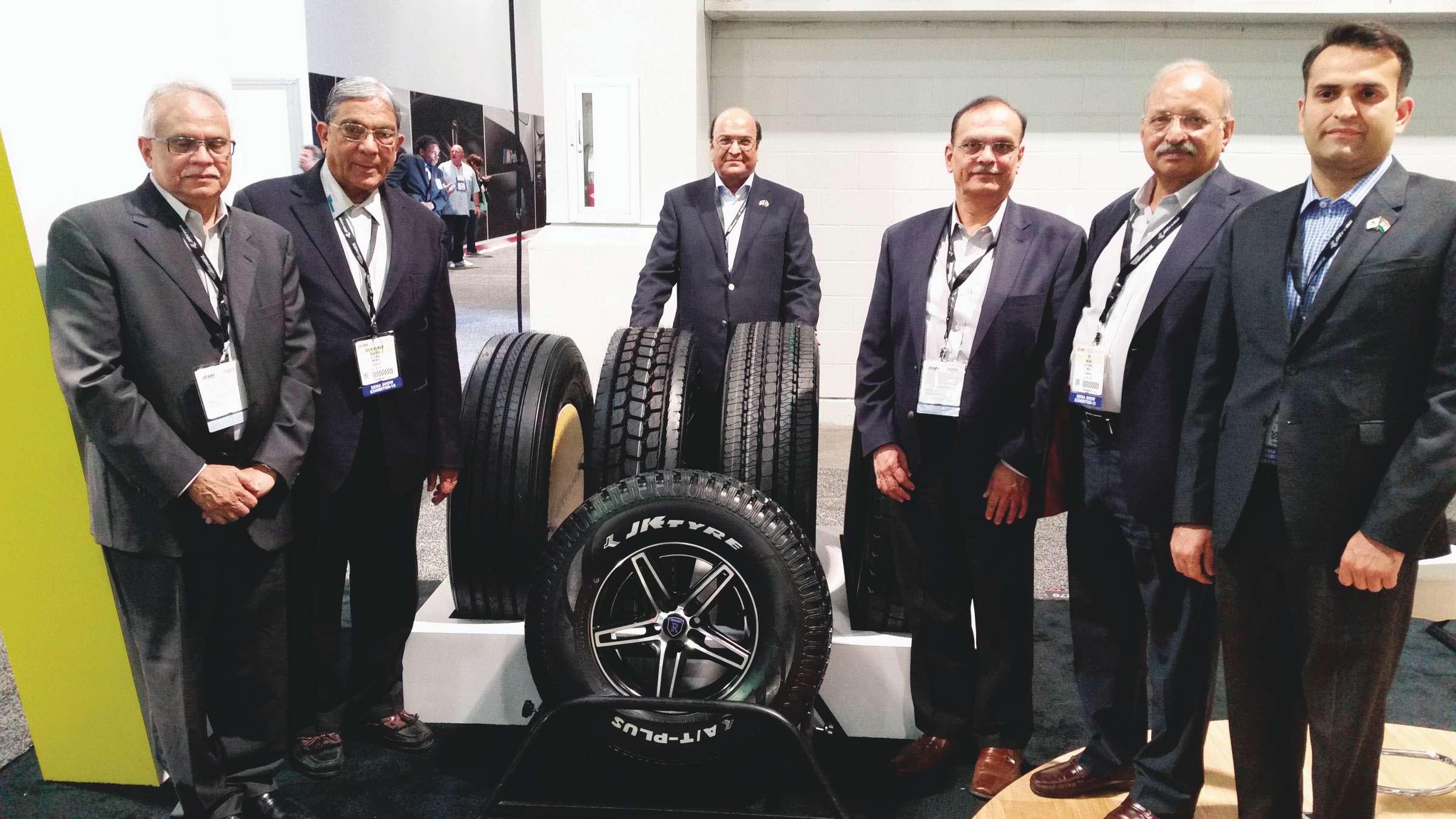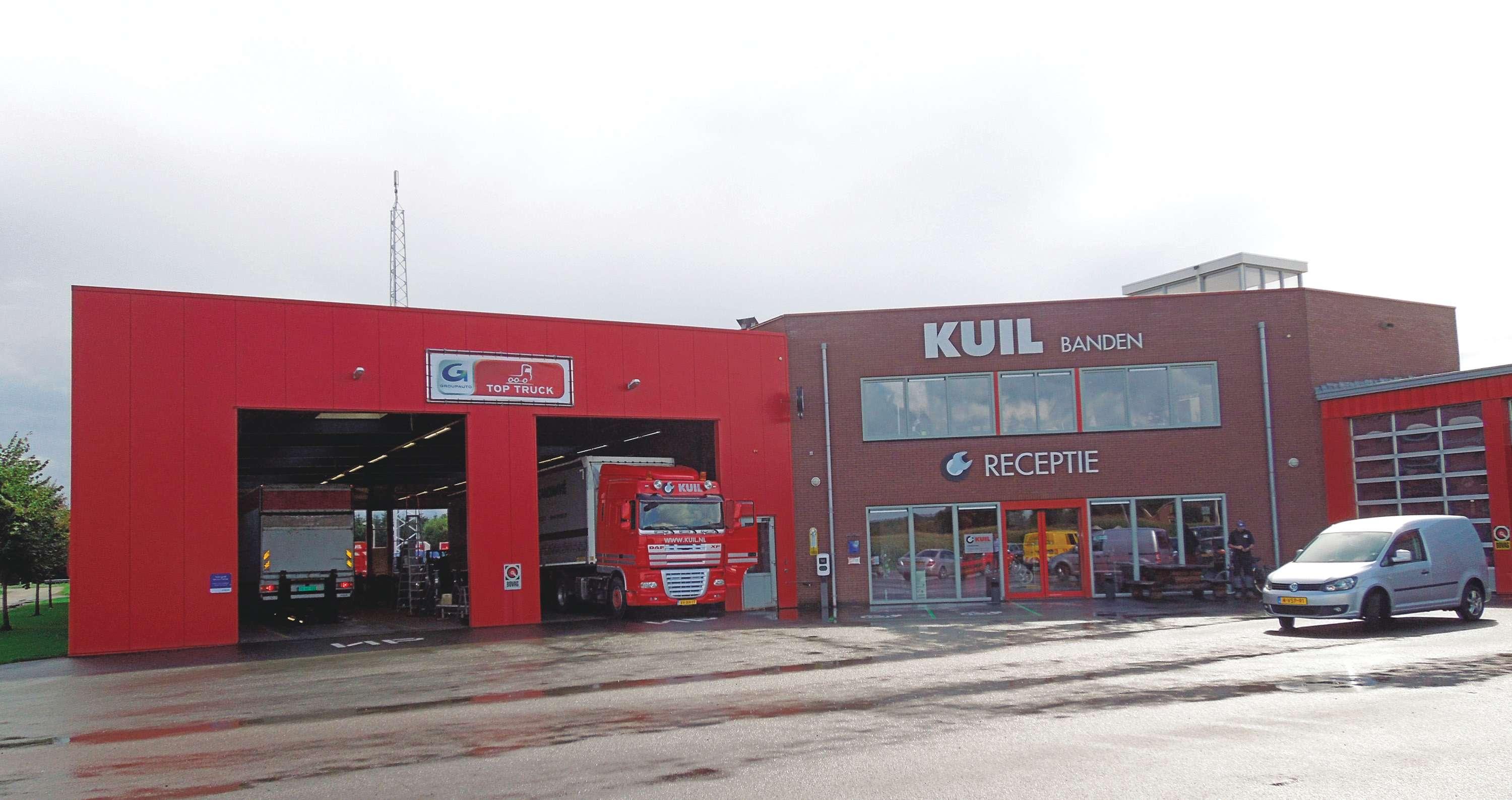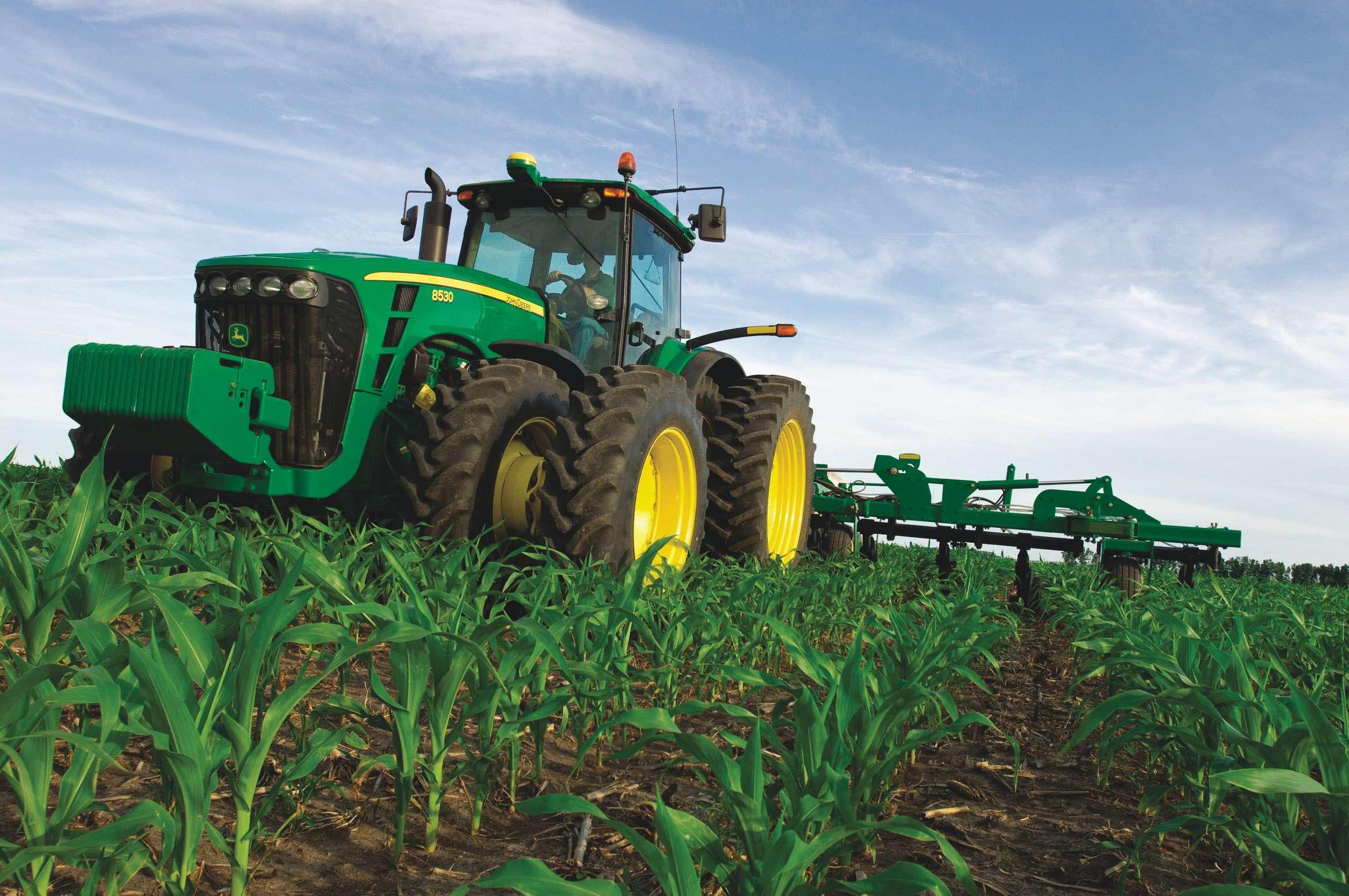2015 SEMA Show
A look at India’s JK Tyre Chairman stresses technology and social responsibility By Bob Ulrich
W
hen Dr. Raghupati Singhania, chairman and managing director of JK Tyre & Industries Ltd., was inducted into the Tire Industry Hall of Fame in November, he was not alone. His elder brother, Hari Shankar Singhania, who died in 2013, was with him in spirit. So were late family members dating back to the early part of the 20th Century, including his grandfather and great-grandfather. “As a group, we are known as JK Organisation,” says Singhania. “It is 125 years old. We are involved in a host of Indian businesses. Automotive tires is one of them, but they also include paper, cement, agri-genetics seeds, some cosmetics, wool and textiles, rubber, automotive products and dairy products.” Singhania, 69, and his elder brother started JK Tyre in 1974. Te company operates seven tire plants in India that can produce close to 27 million passenger, light truck, truck/ bus, farm and OTR tires annually. In 2008, the company acquired Mexican tire manufacturer CIA Hulera Tornel. Its three plants have the capacity to produce nearly 8 million tires annually, including 5.5 million radial passenger tires. Total sales are expected to reach $1.7 billion in fscal 2016. Under the younger Singhania’s leadership, JK Tyre pioneered radial technology in India beginning in 1977. He also established six state-of-the-art research and development centers, fve in India and one in Mexico. Technology is the key to the company’s growth, according to Singhania. “Since we entered this business, the biggest change, to my mind, has been the advancement in technology in everything we do. It starts with manufacturing, producing or puting the tire together with highly automated equipment, practically untouched by human hand, more or less. Tat kind of automation is all technology.
“We have worked hard on creating a more green product,” says JK Tyre’s Dr. Raghupati Singhania, who was among the 2015 Tire Industry Hall of Fame inductees.
“Ten you move on to sell these products. Again, a large amount of technology is at work. Everything is today accessible on your handheld devices. We are billing our customers and keeping track of the sales data on handheld devices. “Ten you move on to the movement of goods. Logistics management is high technology at work. You spot where the truck is, you spot each SKU with the barcoding, etc. “IT (information technology), computers, B2B interaction, e-commerce – they are all needed to manage the company,” he says. “Technology intervention continues to be a game changer, which is making a huge diference in everything we are doing across business in this era.”
Ecologically responsible
(Left to right): H.K. Chopra, advisor – international sourcing and sales; Arun Bajoria, director and president of international operations; Dr. Raghupati Singhania, vice president, J.K. Organisation; Kumar Joshi, executive director; V.K. Misra, technical director; and Anshuman Singhania, vice president – operations.
34
Another big change in the company over the years has been the “greening” of not only its manufacturing processes and plants, but also its products. “Our products have been greened in the sense that now, most of our car tires are running on silica-based compounds and, therefore, have low rolling resistance,” says Singhania. “We also are working on substituting petroleum oils and other petrol items with nanoparticle and biodegradable materials “Greening the processes involves power conservation and power management. We are using more renewable energy when we can, whether it be solar or wind. We also have started conserving water and other energy. For instance, a number of our plants have zero water discharge — not a drop of water leaves the plant.” JK Tyre also is “greening the environment.” Tat involves planting trees around all the plants. More than 160,000 trees
MTD December 2015

